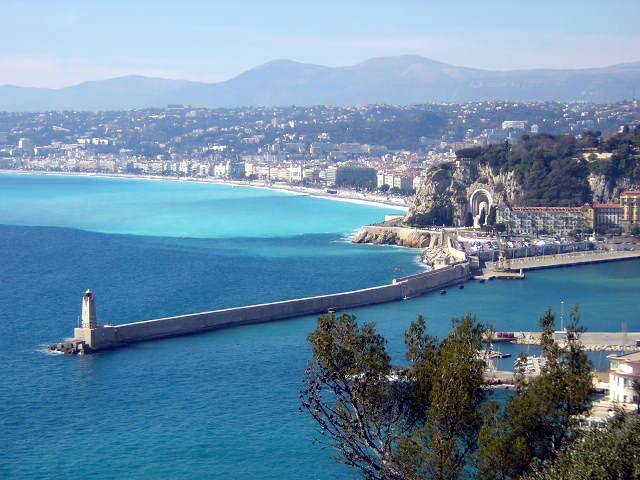\ˈnīs\
Yet the headlines filling my news feed today have been unusually jarring: “France Shaken by Nice Attack.” Trending twitter hashtags, filled with prayers and good wishes for all who are suffering, include #WeAreNice and #NiceAttack.
If only we were in fact suffering from an attack of excessive nice.
But it’s not that kind of world, nor is it that kind of word.
Our word nice has traveled a great distance in the course of its long history. The word entered English in the late thirteenth century meaning “stupid” or “foolish” (from the French nice [clumsy, weak, poor, simple, stupid], and farther back the Latin nescire [not-knowing or ignorant]). Once arrived in English, nice quickly picked up a remarkable number of additional connotations, including “coy” and “reserved”; by the fourteenth century it also meant “fussy” or “fastidious.” A hundred years after that, nice had acquired some of its relatively modern meanings of “precise,” “subtle,” or “careful.” (This is where we get expressions like “a nice distinction” and “nice and easy” and eventually Nicely-Nicely Johnson.) By the eighteenth century it had come to mean “agreeable” and by the nineteenth, “kind” and “thoughtful.”
| (The city of Nice is another kind of nice altogether. It was founded around 350 BCE in the wake of a fierce battle between the Greeks living in what is now Marseille and their neighbors to the east, the Ligurians, who also claimed that territory. The Greeks won, and they commemorated their triumph by turning a longstanding seaside settlement into a new city: Nicaea (Νίκαια), named for Nike, the goddess of victory.) |
One of the more prominent proponents of this view is the redoubtable Fowler (of Fowler’s Dictionary of Modern English Usage), who criticized nice back in 1926, saying it had become “too great a favorite with the ladies, who have charmed out of it all its individuality and converted it into a mere diffuser of vague and mild agreeableness.”
Some in the anti-nice brigade even try to enlist Jane Austen as a fellow-traveler, citing the wonderful exchange between Catherine Morland and Henry Tilney in Northanger Abbey:
| "I am sure," cried Catherine, "I did not mean to say anything wrong; but it is a nice book, and why should not I call it so?" "Very true," said Henry, "and this is a very nice day, and we are taking a very nice walk, and you are two very nice young ladies. Oh! It is a very nice word indeed! It does for everything. Originally perhaps it was applied only to express neatness, propriety, delicacy, or refinement—people were nice in their dress, in their sentiments, or their choice. But now every commendation on every subject is comprised in that one word." |
But I reject the implication that Austen herself is a proto-Fowlerite when it comes to nice. Henry Tilney may be an admirable man in many ways, but right here he is being a putz, a fact that his sister Eleanor points out with some asperity. To Henry’s remark about “every commendation on every subject” being reduced to the pabulum of “nice,” she zings back:
| "While, in fact … it ought only to be applied to you, without any commendation at all. You are more nice than wise. Come, Miss Morland, let us leave him to meditate over our faults in the utmost propriety of diction, while we praise Udolpho in whatever terms we like best.” |
Of course, nice has its limits. We and our world can be brutal and violent, and nice is a pretty draggled daisy to put in that rifle barrel. Nice the city—beautiful, ravaged, reeling Nice—was built ages ago on the blood of Greek and Ligurnian fighters who didn’t make it home. You can’t fix that with nice. Nice by itself won’t fix centuries of systematic racism or the messy historical tangle of hatred, grievance, exploitation, and resentment that propels young men into sniper nests or puts them behind the wheels of murderous trucks. Nice by itself won’t do much to reform a justice system, on the street and in the courts, primed to view young black men as a deadly threat.
But in the midst of the struggle, I hope we can stage our own kind of nice attack. An onslaught of compassion, and kindness, and maybe a little foolishness. That kind of #NiceAttack, I can get behind.


 RSS Feed
RSS Feed